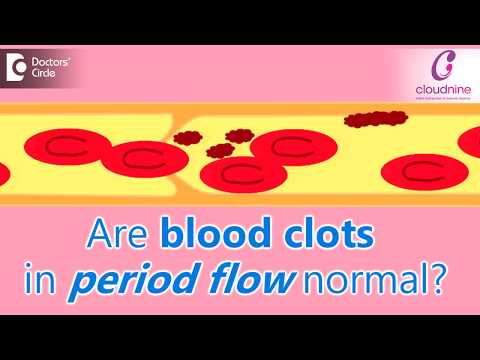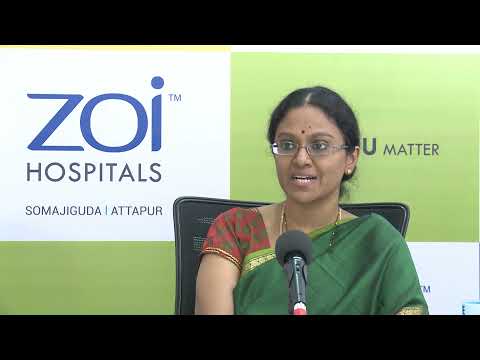Understanding the intricacies of your body is crucial for achieving greatness in life and fitness. One often overlooked aspect of women’s health is period blood clots. These little guys can reveal a lot about what’s happening in your body and give you a heads-up on potential issues. So, let’s dive deep into the science of menstrual health and get you equipped with the knowledge you need to crush your fitness goals, even if you’re dealing with a little “time of the month” disruption!

The Science Behind Period Blood Clots: What’s Normal and What’s Not?
Every month, a woman’s body goes through a fascinating cycle, preparing for potential pregnancy. This involves shedding the uterine lining and, along with it, blood. Now, period blood clots are nothing to be afraid of, but understanding what’s normal is key.
What are Period Blood Clots?
Normal vs. Abnormal Clots
A few clots here and there during menstruation? That’s pretty standard. Excessive clots, especially those larger than a quarter, can hint at heavier-than-normal bleeding. When symptoms like severe pain, fatigue, or even bruising easily pop up, you may be dealing with a deeper issue worth exploring.

Top 5 Reasons for Experiencing Period Blood Clots
Understanding why you experience period blood clots can be as empowering as racking up those weights in the gym. Here are the common culprits:
Fluctuations in estrogen and progesterone can throw your menstrual cycle out of whack. Too much estrogen can lead to thicker uterine linings and, ultimately, heavier blood flow and more clots. Just like a workout where the weights are too heavy, your body struggles to cope!
If uterine tissue grows outside the uterus, it can cause painful periods and substantial clotting. This condition can make your periods feel like a wrestling match — and trust me, it might lead to heavier flows that produce larger clots.
These benign growths can change the way your body sheds its lining. Think of them as unwanted gym buddies: slowing you down and making things a lot tougher!
Known medically as menorrhagia, it’s when your flow is heavier than usual, which can lead to those pesky period blood clots. Keep in mind, heavy bleeding could be a sign of something bigger, and it’s worth taking seriously.
Conditions like von Willebrand disease and thrombophilia can significantly impact how your blood clots during your period. Having such disorders means your body may not regulate clotting the same way others do, causing those clots to be more prominent.

Period Blood Clots and Your Health: Potential Risks and Symptoms
Ignoring signs from your body can lead to serious consequences. If you’re experiencing significant period blood clots, you may also face several health risks.
Health Implications
Heavy menstrual bleeding can lead to anemia, fatigue, and ongoing cramps. If you find yourself feeling run-down post-menstruation, it might not just be your workout routine — it could be linked to the toll heavy clots take on your body.
Additional Symptoms
Secondary Issues
Keep an eye out for how your menstrual issues can lead to other health problems. Conditions like endometriosis can cause more than just period pain; they can affect your overall well-being. Connecting the dots can open up new insights about how to treat your body better.

Lifestyle Factors and Period Blood Clots: What You Should Know
Many lifestyle factors can sit at the helm of your menstrual health. By making adjustments, you can take control of your period blood clots and overall fitness journey.
Nutrition
What you eat influences everything, including your cycle. A diet rich in iron, healthy fats, and antioxidants can help support your body’s natural processes. Think foods like spinach, avocados, and berries — sound good? They’re not just delicious; they help maintain a healthy flow.
Exercise
Stress and Sleep
Stress can wreak havoc on your hormones, leading to irregular periods filled with clots. Focus on managing stress and ensuring you get enough sleep to allow your body to recover and balance itself. Meditation, light yoga, or even reading a good book can do wonders.

When to Consult a Doctor About Period Blood Clots
Keep a sharp eye on your body, because knowing when to consult a health professional could save you time and trouble. Let’s break it down:
Warning Signs
Personalized Evaluation
Every individual is different. If your family history includes heavy bleeding or menstrual disorders, touch base with your doctor for a personalized evaluation. You are unique, and your health care should be too.
What to Expect at a Doctor’s Appointment
Prepare for tests and evaluations that could include blood work or imaging. Your appointment should revolve around key questions about your symptoms, lifestyle, and family history. Don’t hesitate; advocate for your health!
Period Blood Clots and Broader Menstrual Health: Insights and Innovations
Recent research links menstrual health to overall body functions, emphasizing the importance of understanding the ins and outs of period blood clots. Did you know menstrual conditions can impact other areas, like the presence of blood in semen? Exploring these connections reveals how integrative health truly works.
Innovations in Menstrual Health
Innovative solutions, like tracking apps, have made it easier than ever to monitor menstrual health. And, with ongoing research, health technologies are paving the way for more efficient treatments and personalized care. Stay informed about new developments and share findings with friends or family!
Community Engagement
Talking openly about menstrual health helps in breaking social stigmas. If you have any questions or want to share your experience, don’t hesitate. A supportive community is key for everyone’s mental and physical well-being.
Embracing A Comprehensive Understanding of Your Body
Understanding period blood clots empowers you to take charge of your health. Knowing what’s normal versus abnormal allows you to navigate your menstrual experiences effectively. Take a proactive approach by monitoring your menstrual patterns, sticking to a solid nutrition plan, and adjusting your lifestyle as necessary.
Got your body’s back by talking to a doctor if you notice something doesn’t seem right. By fostering a well-rounded understanding of your health, you not only improve your physical condition but also encourage open discussions about menstrual health. Together, let’s shatter taboos and create a supportive community! Remember, your body communicates through these signs — listen, learn, and seek the care you deserve.
Now go smash those fitness goals, and remember: keep an eye on your body. It’s the only one you’ve got.
Period Blood Clots: What You May Not Know
Understanding Period Blood Clots
Period blood clots can be more than just an inconvenience; they can also give clues about your overall health. These clots are typically a mix of blood, mucus, and tissue. Believe it or not, the size and frequency of these clots might have a lot to say about your menstrual health. For instance, larger clots can signal heavier menstrual flow, possibly linked to conditions like fibroids. It’s a bit like deciphering lyrics to “Big D Randy”—the nuances might reveal deeper meanings if you pay attention. Keeping track of your cycle can lead to valuable insights, much like following the detailed index Of finger that charts various conditions and causes.
Trivia About Period Blood Clots
Here’s a bizarre tidbit for you: back in the day, women would actually use cloths soaked in their menstrual blood for various rituals. Talk about a connection to your body! Also, did you know that your menstrual blood can vary in color and thickness? This change can be as wild as the artifacts found in the museum Of The weird, showing just how multifaceted human biology can be. And speaking of wild, just like the history of benzedrine, these episodic clots can have roots in hormonal shifts, making them a fluctuating feature of a woman’s cycle.
When to Be Concerned
While most clots are harmless, don’t ignore persistent or painful ones. In extreme cases, they could hint at underlying health issues such as endometriosis—a condition as serious as a nosocomial infection when it comes to women’s health. If you notice sudden changes or an increase in pain, a quick chat with your healthcare provider can make all the difference. Similarly, while chatting with friends about health can feel as casual as sharing genital herpes Pictures, it’s crucial to address any significant changes in your cycle and clots. Remember, like The Jerusalem post often discusses in its health segments, awareness and education are key to understanding what’s happening in your body.
So, next time you experience period blood clots, take a moment to reflect on what your body might be saying. Understanding your cycle can lead to new discoveries, much like exploring What Is artificial intelligence in today’s tech landscape—ever-questioning and uncovering deeper truths about our lives!



























